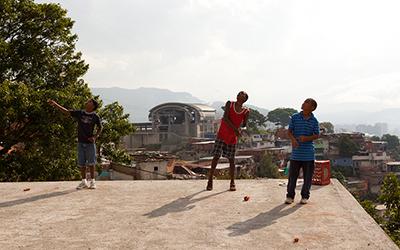
Informality is the new normality. Designers need a new set of process-based tools to effectively address the complexity of the informal context.
Identify the context. The research and design process begins with a robust critical analysis using the following tools: socio-geographical mapping, drawing, modeling, interviews and writing. The goal of this rigorous exercise is to clearly identify the critical issues and challenges to be addressed and that serve as the foundation for design.
Design the Syncretic City. Seek to foster effective interaction between the formal and informal, between the conflicting forces of the city, to create flexible spaces and inclusive environments. It is not a desire for homogeneity; it seeks productive coexistence.
Redefine sustainability. It is essential to expand the definition of sustainability to encompass social and economic imperatives as formative potentials.
Engage the existing city. The existing city is a catalytic realm of potentially new trajectories. The new city will be built on and with the old.
Expand. The architect is an animator of change – an interface between top-down planning and bottom-up initiatives. Designers provide the necessary platform for an interdisciplinary practice with purpose-oriented social design strategies.
Unfold. Find and occupy the latent territory of the city by shifting the understanding of urban challenges from inevitable symptoms of outmoded models to new opportunities.
Combine. Combine social infrastructure with physical infrastructure; combine mobility and sustainability; combine environmental concerns with social and economic imperatives.
Challenge the status quo. Conventional practices must be questioned. Alternative urban models must be explored in order to address the asymmetrical urbanization processes.
Contact: Michael Contento, Brillembourg Klumpner Chair of Architecture and Urban Design, ETH Zürich